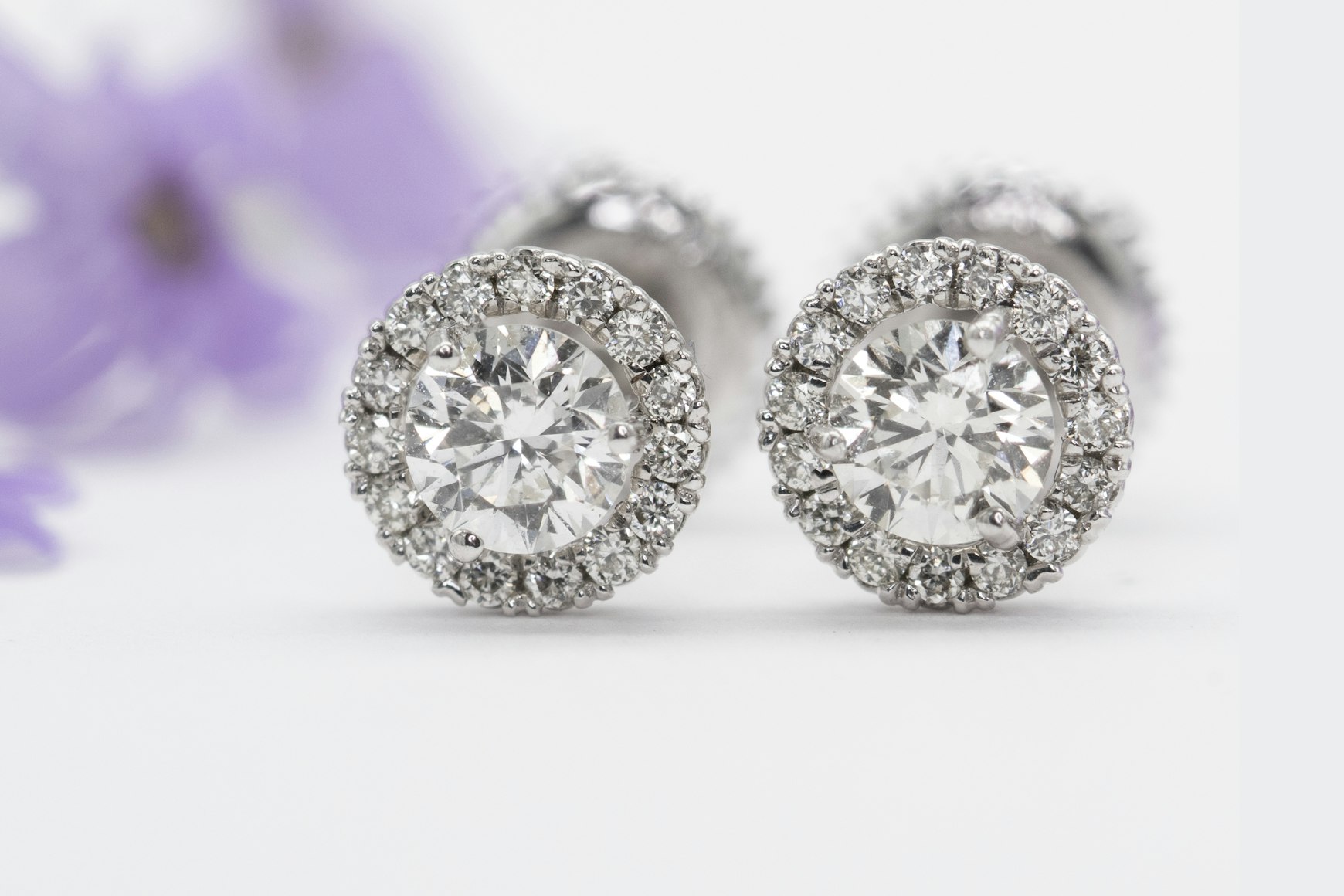How To Clean Your Jewelry Like a Professional Jeweler
Whether you use it daily, display it proudly, or store it for safekeeping, all jewelry requires specific care. Understanding the composition of your jewelry is critical to increasing its longevity. So, knowing how to clean your jewelry properly is vital to preserving your gold, silver, diamonds, and precious stones for you and future generations.
Diamonds

Diamonds are the hardest known natural substance on Earth, and they’re composed of only a single element: carbon. In fact, only diamonds can scratch other diamonds. Occasionally, these gems may lose their distinctive sparkle when they become dirty. Hand lotions, cosmetics, oils from your skin, and soaps can all cloud their surfaces. When this happens, you can easily clean diamonds with the following steps:
- If you’re washing your jewelry in a sink, use a sink drain stopper or place soft, absorbent towels over the drain to prevent jewelry from falling through it.
- Mix mild dishwashing liquid with warm water in a bowl. Let the diamonds soak in the solution for 20 to 40 minutes, then brush gently using a soft toothbrush.
- Rinse the diamonds under running water and pat them dry with a soft, lint-free cloth.
To keep your diamonds looking their best after cleaning, store them in a separate area from other jewelry. Also, have a professional jeweler check the settings and prongs annually to ensure the diamonds are secure.
Emeralds
As the green variety of the mineral beryl, emeralds are one of the world’s most valuable gemstones by weight. Emeralds have many internal fissures and fractures. Even though colorless oils and resins fill these flaws to improve clarity, emeralds are still brittle and fragile and need care when handling. So, if you bang them hard or expose them to extreme temperature changes, they can develop internal cracks.
To clean emeralds, follow these steps:
- Wipe them with a damp cloth.
- If a stone is especially dirty, clean it gently with soapy water at room temperature. Never use household ammonia, chemical cleaners, or very hot water for cleaning.
- Gently pat the gemstones dry with a soft cloth.
Always store emeralds away from other jewelry to prevent scratching. And only allow experienced jewelers to handle conditioning and resetting of the emeralds in your jewelry pieces.
Gold
Gold is one of the most popular precious metals used for fine jewelry. Did you know that pure gold is soft enough to mold like stiff clay? This property makes it necessary to mix pure gold with another metal, called an alloy, to stabilize it. That’s why, by law, gold jewelry must have a hallmark showing the percentage of gold in the jewelry. For example, 24-karat gold is 99.99% pure.
While gold does not corrode like other metals, it can become brittle. Thus, you must handle gold carefully to prevent it from scratching. To clean gold, follow these steps:
- Wash it in warm water with a few drops of mild dishwashing liquid.
- For complex gold jewelry pieces, clean them gently with a soft toothbrush.
- Rinse and dry with a soft cloth or chamois.
It’s good practice to store your clean gold pieces in compartmentalized boxes or velvet bags to prevent scratching. Does your gold look bent or scratched? If so, seek the help of a jeweler to polish and reshape the gold. Your jeweler should check the prongs on your jewelry for wear once a year.
Pearls
Pearls form inside mollusks, such as mussels and oysters. They develop when a particle, such as a grain of sand or a parasite, gets stuck in a mollusk’s soft tissue. The mollusk responds to the foreign element by coating it with aragonite and conchiolin, the same materials that form the interior of its shell.
Most pearls today come from cultivation — or culturing — using a technique developed by Kokichi Mikimoto in Japan in the late 19th century. These pearls result from placing a mother-of-pearl bead in a mollusk’s tissue, which is set in a cage. Two to three years later, the cultured pearl is ready for harvesting.
Pearls are soft and particularly susceptible to damage if not handled with care. Since cosmetics, fragrances, hair spray, body oils, and sweat can all cause damage to pearls, be sure to wipe your pearls with a soft, damp cloth each time you take them off. Do they seem to be particularly dirty on occasion? If so, clean the pearls with water and mild dishwashing liquid, but do not soak them. Place them on a clean, lint-free towel to allow the string, the silk or nylon thread connecting the pearls, to dry thoroughly.
Over time, the string can weaken and stretch. Depending on how often you wear your pearls, you may need to have jewelry containing pearls restrung as often as once a year. Also, store your pearls in a soft pouch separate from other jewelry when you’re not wearing them.
Silver
Like gold, pure silver is malleable and is generally alloyed with other metals to provide durability and stability. Several types of silver exist, including sterling silver, silver plate, coin silver, and hotel silver.
Although collectors find its luster and reflective properties appealing, silver tarnishes easily. To clean silver jewelry, you need to use a polish designed for this purpose, which is available from jewelers. Then, follow these steps:
- Apply a small dab of polish to the silver with a soft cotton cloth and rub the piece gently with the polish.
- Rinse the silver well in warm water and dry with a soft cloth to prevent spotting.
Silver can develop a foggy sheen with many years of use and wear, known as a butler finish. This appearance on the metal consists of thousands of microscopic scratches that dull the brightness. While it’s not harmful to the metal, this finish can detract from the jewelry’s appearance.
Storing your silver jewelry in tarnish-inhibiting flannel bags is best when you’re not wearing it. Never store silver pieces in plastic bags or wrapped with rubber bands, which can encourage tarnishing.
Get Your Jewelry Repaired by Experts
Are you seeking expert repair services for your fine jewelry pieces? If so, visit Americash Jewelry & Coin Buyers in Westmont, Illinois, outside of Chicago. We specialize in purchasing fine jewelry, so we’re well-equipped to repair antique, designer, and estate jewelry. Our services include gemstone resetting, chain restoration, and necklace restringing. Contact us online to learn more, or call us at 630-791-5647 to speak with a jewelry repair expert.
Image by Sabrianna is licensed with Unsplash License



